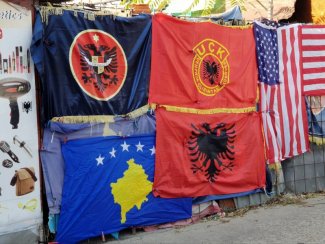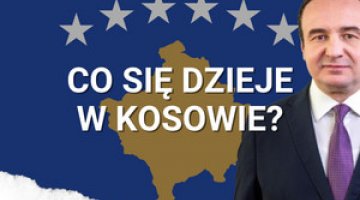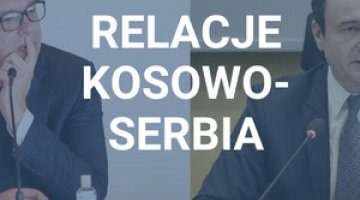Kosovo: the struggle for power amid the pandemic

On 25 March the Assembly of Kosovo passed a vote of no confidence in the government of Prime Minister Albin Kurti, the leader of Vetëvendosje party (Self-Determination). This procedure was initiated by the Democratic League of Kosovo (LDK) which co-formed the ruling coalition. 82 of the 115 parliamentarians voted against the current government (with one abstention). The chairperson of the Assembly of Kosovo, Vjosa Osmani (who is currently the most popular LDK politician) voted to keep Kurti’s government in place. There have been protests in Prishtina against the vote of no confidence for a week. The stability of the government – which took power in February this year – was called into question from the outset. The coalition was split concerning its agenda and the US government did not conceal its scepticism regarding Mr Kurti.
Commentary
- The fall of the government was directly caused by a disagreement in the coalition concerning the strategy for fighting the COVID-19 pandemic and a difference of opinion regarding the policy on Serbia. Some of LDK’s leaders supported President Hashim Thaçi’s aim to introduce a state of emergency, which would have reduced the competences of the government to the benefit of the president himself. The dismissal of the minister of the interior (LDK) – who went against the stance of the government and called for a state of emergency to be declared – served as the pretext for the motion to be submitted. However, the real reason for the falling out is concern among politicians (mainly of the older generation) in connection with the government’s declared anti-corruption measures and reform of the system of governing the country as this could threaten their influence and positions. This affects President Thaçi in particular; his Democratic Party of Kosovo (PDK) was removed from power by Mr Kurti. Opposition groups joined forces against Kurti and were joined in this by representatives of national minorities and some LDK politicians. However, the likelihood of them forming a stable government is slight.
- This political crisis has once more laid bare the deep divisions between the countries of the EU and the USA regarding the policy on Kosovo. The US clearly supported President Thaçi in his conflict with the government. On 24 March representatives of Germany and France officially called on LDK to withdraw its motion of no confidence, stressing the need to maintain a stable government during the fight against the COVID-19 pandemic. In contrast to this, the US ambassador to Kosovo, Philip Kosnett supported the no confidence vote in parliament. The Donald Trump administration has been highly sceptical of Kurti’s government since it took power, clearly backing President Thaçi in his attempts to regain the crucial role in the Kosovar political arena. At the beginning of March, Thaçi had a series of meetings in the US, including with Serbian President Aleksandar Vučić and Richard Grenell, who serves as both US ambassador to Germany and as President Trump’s special envoy for Serbia and Kosovo peace negotiations. The leadership in the US most likely believe that only Thaçi is able to guarantee that an agreement with Serbia will be reached quickly, which probably would include a correction of the borders with American patronage. President Trump would thus be able to present this as an achievement on the international arena during the presidential campaign. The majority of EU member states (including Germany) have distanced themselves from America’s policy on Kosovo and Serbia. The EU, which has previously served as a mediator between Belgrade and Prishtina, is not able to take on a joint position regarding Kosovo-Serbia negotiations but the divisions between the US and the EU in this area are likely to grow.
- The fall of the government threatens the destabilisation of the situation in Kosovo during the difficult period of dealing with the COVID-19 pandemic. Until a new coalition is formed, Kurti’s government will continue to rule. It is rather unlikely that an election will be held at present and the formation of a new governing coalition will be very difficult. Amid the pandemic, Kosovo is in a particularly difficult situation since its healthcare system is based on private clinics and citizens often go abroad for treatment. This reduces the ability to effectively tackle the spread of the illness. In the long-term perspective, the political crisis will rather delay the return to Serbia-Kosovo talks than bring them forward. The mood in society and the wave of protests show that Kurti is broadly popular in society and it will be hard for President Thaçi to convince them to make concessions to Serbia.




